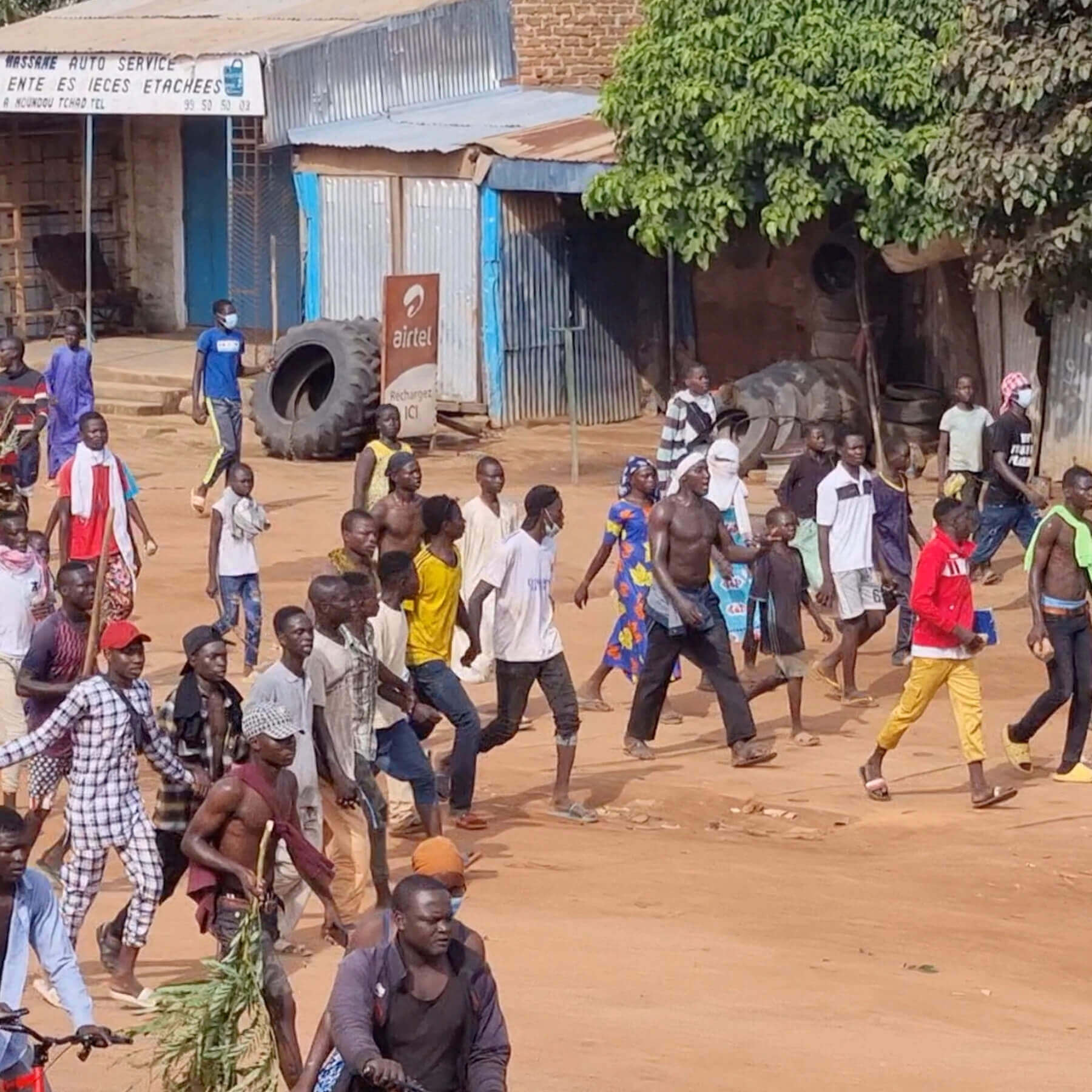Over 60 people died and around 300 sustained injuries in Chad on Thursday as violent clashes erupted between anti-junta protesters and security forces. Hundreds took to the streets across the country to demand an end to military rule and a quicker transition to democracy.
Around 30 to 40 people died in the capital N’Djamena, and another 32 people were killed in Mondou. Protests also occurred in other cities; however, it is unclear whether there were any casualties.
Witnesses told the Associated Press (AP) that the protests started when demonstrators in N’Djamena began blowing whistles at 3 am local time and subsequently barricaded roads and set fire to the headquarters of newly-appointed Prime Minister (PM) Saleh Kebzabo’s National Union for Democracy and Renewal party. The military leadership immediately deployed security forces, which fired live rounds and used tear gas to quash the demonstrations.
AP reported that security forces continuously fired at the protesters, making it difficult for them to gather the dead. According to the Committee to Protect Journalists (CPJ), Chadian journalist Narcisse Orédjé was shot dead by security forces. The CPJ noted that it was not the first time the Chadian military had targeted reporters, saying that troops killed local reporter Evariste Djailoramdji in February this year.
Authorities claimed that protesters killed ten police officers. PM Kebzabo called the demonstrations an “uprising to seize power by force,” warning that “those responsible for this violence will face justice.” He said the “demonstrators had firearms and they are considered rebels.” Kebzabo told The Guardian that he talked with opposition leaders, ordering them to call off the protests.
At least three people were killed in pro-democracy protests in Chad, family members and a hospital worker have said, after the country's ruling military council pushed back elections to 2024 https://t.co/x6WWK4UeAL pic.twitter.com/KsP288M1tN
— Reuters (@Reuters) October 20, 2022
Thursday’s demonstrations were the largest since junta leader Gen. Mahamat Idriss Déby seized power immediately following his father and former President Idriss Déby’s assassination in April 2021. People took to the streets to demand that Gen. Mahamat follow through on his promise to relinquish power and hold elections.
Idriss Déby, who had ruled the country since 1980, was shot dead by the Libya-based Front for Alternation and Concord in Chad (FACT) rebels, who attempted to oust Déby. Subsequently, after days of fighting, the military seized control of the country and proclaimed victory over the rebels. The Transitional Military Council took over power and appointed Gen. Mahamat as Chad’s leader.
Gen. Mahamat promised that the military would oversee the smooth transition towards democracy and hold elections in 18 months, which meant that he would have had to hold elections on 20 October, 2022. However, he has repeatedly delayed transition talks, much to the frustration of opposition groups.
Five dead were found on the hospital floor, two of which were draped with the Chadian national flag and three with bloodied white blankets.
— Gurbaksh Singh Chahal (@gchahal) October 20, 2022
The military and 40 rebel groups signed an agreement in August to finalise a roadmap for presidential elections. However, the talks did not materialise, as several rebel groups, including FACT, said the accord “failed” to consider their demands and fell short of ensuring that all partners are treated equally in the national dialogue. Moreover, then Foreign Minister Chérif Mahamat Zene resigned in September due the junta government’s unwillingness to advance the dialogue process.
Since then, there has been little progress in negotiations. Earlier this month, Gen. Mahamat reneged on his promise to cede power and extended the military leadership by another two years, appointing himself president and paving the way for him to contest elections at the end of the transitional period. The junta has also sought to quash opposition by subsuming it within its government. For instance, the new PM was previously an opponent of the military regime.
This has fuelled calls for the junta to cede power, and opposition groups have urged people to demonstrate against the military. Keeping this in mind, the military general imposed a curfew from 6 pm to 6 am, which runs alongside the existing state of emergency declared due to heavy floods that Mahamat says have “swallowed up more than 465,000 hectares of fields and 19,000 heads of livestock.”
The international community has firmly condemned the violence against protesters. African Union (AU) Chairperson Moussa Faki Mahamat criticised the military’s repression and called on all parties to seek peace. The United Nations (UN), too, deplored the “lethal use” of force against protesters and urged the junta to ensure the “safety and protection of human rights, including freedom of expression and peaceful assembly.” Likewise, the United States (US) urged all parties to “de-escalate the situation and exercise restraint.”
Former colonial power France, meanwhile, rejected reports that it is supporting the junta. “France plays no role in these events, which are strictly a matter of Chad’s internal policy. False information about alleged involvement of France has no basis,” its foreign ministry said in a statement.

